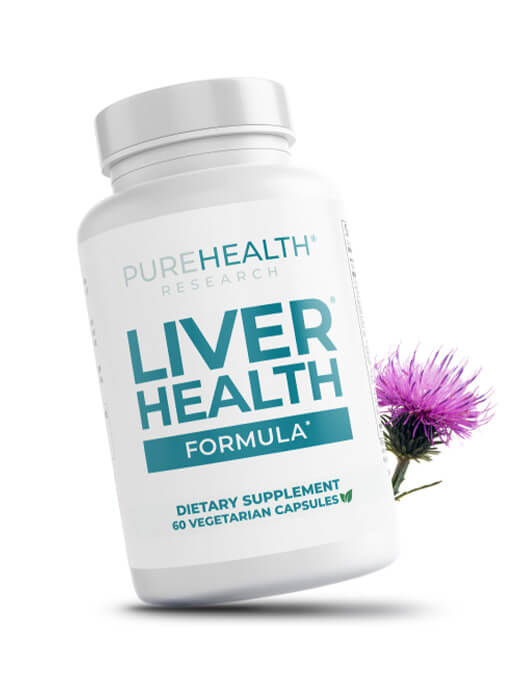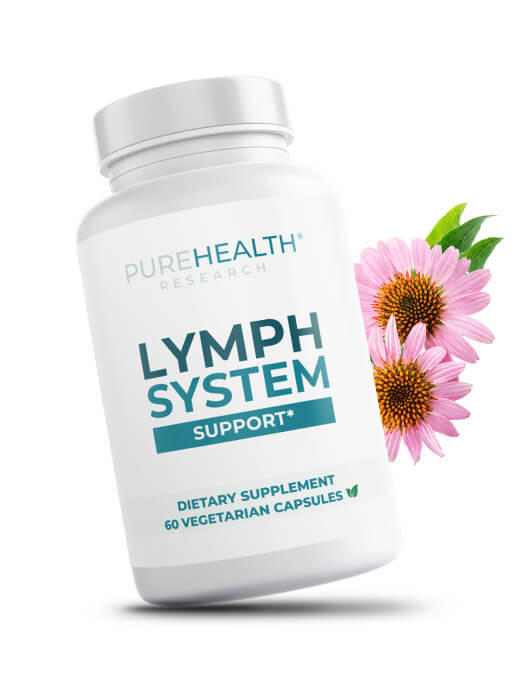Dandelion
- Latin Name: Taraxacum officinale
- Common Name: Dandelion
- Family: Asteraceae
- Source: Found worldwide in temperate regions

What are Dandelions?
Dandelion, often overlooked as a common yard weed, represents one of nature's most versatile healing plants. This resilient herb has earned its place in traditional medicine systems worldwide, particularly valued for its unique ability to support both detoxification and nutrition.
Dandelion parts used in traditional medicine and supplements include:
- Dandelion greens (leaves)
- Dandelion root
- Dandelion flower
- Dandelion seeds
Dandelion Benefits
Dandelions offer a range of potential health benefits:
Some people use dandelion for face bloat, believing its diuretic properties may help reduce puffiness. However, more research is needed to confirm this effect.
PureHealth Research Products with Dandelion
Dandelion Dosage
There is no standardized dosage for Dandelion, however here are some general guidelines for tea and supplement intakes:
| Usage | Form | Dosage |
|---|---|---|
| Tea | Root Tea | 1-2 teaspoons dried root per cup, steep 10-15 min |
| Tea | Leaf Tea | 1-2 teaspoons dried leaves per cup, steep 5-10 min |
| Supplements | Root Capsules | 500-1500mg daily |
| Supplements | Leaf Capsules | 500-1000mg daily |
| Supplements | Tincture | 1-2ml, 2-3 times daily |
Individual responses to dandelion can vary, so it's advisable to start with a lower dosage and adjust as needed, while always prioritizing consultation with your healthcare provider.
Interactions with Other Ingredients
When adding dandelion to your wellness routine, it's helpful to understand how your body might respond. Your digestion may need a few days to adjust, and you might notice the natural bitter taste takes some getting used to.
Dandelion creates powerful synergies with several natural compounds. Combined with milk thistle, it enhances liver support through complementary detoxification pathways. When paired with probiotics, dandelion's inulin prebiotic properties boost gut health benefits, while combinations with turmeric amplify anti-inflammatory effects.
Dandelion Side Effects
If you have allergies to plants like ragweed, take extra care, as dandelions belong to the same family. Those with gallbladder concerns should check with their healthcare provider first. Expecting or nursing mothers should also have a visit with their doctor before using dandelion.
Can you eat dandelions?
Yes, all parts of dandelions are edible. Dandelion greens can be eaten raw or cooked, flowers can be used in recipes, and roots can be roasted as a coffee substitute.
Is dandelion root safe during pregnancy?
It's best to consult with a healthcare provider before using dandelion root during pregnancy. While it's generally considered safe, individual circumstances may vary.
Is dandelion root bad for kidneys?
Dandelion root is not typically considered harmful to kidneys. In fact, it's sometimes used to support kidney health. However, those with kidney issues should consult a doctor before use.

